Award 2024

Dr. Smita Saxena, Professor of Neurosciences
Dr. Smita Saxena, Professor of Neurosciences, NextGen Precision Health, Dept. Physical Medicine & Rehabilitation, University of Missouri. Examining the crosstalk between autophagy and aggregation in C9ORF72-ALS/FTD
Dr. Saxena obtained her Ph.D. in Neuroscience from the University of Bern, Switzerland, and subsequently pursued post-doctoral studies at the Friedrich Miescher Institute for Biomedical Research, Basel where she developed a strong expertise in amyotrophic lateral sclerosis, with a focus on understanding mechanisms governing selective neuronal vulnerability. In 2010, she established her group at the Institute of Cell Biology at the University of Bern, where she shifted her research focus toward understanding how early neuronal circuit dysfunction might drive and propagate neurodegeneration. Centered around her strong background in cell biology and systems neuroscience, her research interests revolve around deciphering the underlying neuronal mechanisms of resiliency and uncovering molecular correlates of circuit dysfunction in neurodegenerative diseases such as amyotrophic lateral sclerosis (ALS) and frontotemporal dementia (FTD) and spinocerebellar ataxias (SCAs). In the fall of 2023, Dr. Saxena was recruited by the University of Missouri to strengthen the neurodegeneration research program within the framework of the NextGen Precision Health initiative, one of the largest investments in translational research in the history of the University of Missouri Systems. Dr. Saxena has been the recipient of the Swiss National Science Foundation Professorship (2010), Frick Foundation Award (2012), the European Research Council Consolidator Award, and other prestigious European consortia grants. She serves on several grant review panels nationally and internationally and as Associate editor and Scientific advisor for notable scientific journals and patient foundations. She also partners with biomedical companies to support translational and CNS-drug delivery efforts. The funded research proposal will dissect the crosstalk between autophagy, ER stress, and pathological aggregation employing human ALS-patient-derived brain cells and mouse models of ALS.

Clotilde Lagier- Tourenne M.D., Ph.D.
Clotilde Lagier-Tourenne M.D., Ph.D., Associate Professor of Neurology, Massachusetts General Hospital and Harvard Medical School. Optical pooled screens to identify modulators of TDP-43 mislocalization in ALS
Clotilde Lagier-Tourenne, MD, PhD is Associate Professor of Neurology at the Massachusetts General Hospital and Harvard Medical School. She is the recipient of the Araminta Broch-Healey Endowed Chair in ALS, and associate member at the Broad Institute of MIT and Harvard. She trained as a medical geneticist and neuroscientist in Strasbourg, Columbia University and UC San Diego. She was awarded the 6th International Paulo Gontijo Award in Medicine, the 2017 Grass Foundation – American Neurological Association Award in Neuroscience, the 2022 Drs. Lalji & Family ALS Endowed Award for Innovative Healing and the 2023 World Medical Innovation First Look Award. Her team investigates the molecular mechanisms driving neurodegeneration in amyotrophic lateral sclerosis (ALS) and frontotemporal dementia (FTD). She has established collaborations with academic and pharmaceutical partners to develop novel approaches to therapy, including RNA-targeting antisense oligonucleotides and immunotherapies for ALS and FTD. Her group also uses small molecules and genetic screens, including optical pooled screens, to identify modifiers of disease-associated phenotypes and new therapeutic targets for neurodegenerative diseases.
Award 2023
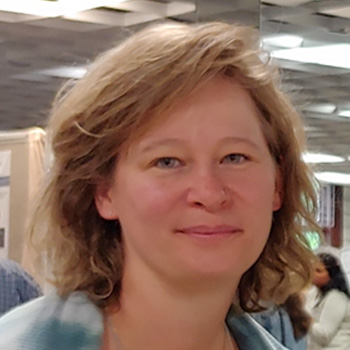
Dr. Christine Vande Velde
Dr. Christine Vande Velde, Professor of Neurosciences, Université de Montréal and Université de Montréal Hospital Research Center (CRCHUM), Relevance of stress granule dynamics to ALS pathogenesis in vivo
Dr. Vande Velde obtained her Ph.D. in Biochemistry from the University of Manitoba and subsequently pursued post-doctoral studies at the University of California, San Diego/Ludwig Institute where she developed an expertise in amyotrophic lateral sclerosis, with an early focus on ALS2- and SOD1-mediated disease mechanisms. In 2007, she established her group at the Université de Montréal/CRCHUM and seized the opportunity presented by the recent discovery of TDP-43 to shift her research focus into RNA biology. Grounded by her strong background in fundamental cell biology, her research interests are centered on understanding the underlying pathological mechanisms that lead to the fatal neurodegenerative diseases amyotrophic lateral sclerosis (ALS) and frontotemporal dementia (FTD). The Vande Velde team uses a broad range of models, ranging from iPSC-derived neurons to post mortem human material to rodent models, and approaches, spanning molecular biology to neuroscience, in order to uncover mechanisms that can be developed as therapeutics and/or biomarkers for ALS and FTD. She is strong believer in collaboration and is a founding member of a pan-Canadian deep clinical phenotyping and biomarker platform (CAPTURE ALS). Dr. Vande Velde has been the recipient of the Frick Foundation Award (2012), the Canadian Institutes of Health Young Investigator Award (2013), and the Jenny Henkel Memorial Lectureship (2018). She serves on a number of grant review panels both nationally and internationally, served 6 years as a Director of the Board of the ALS Society of Canada, and as Co-Chair of their Scientific and Medical Advisory Council, and is the recently appointed Scientific Director of the Packard Center for ALS Research. The goal of the funded research proposal is to dissect the contribution of stress granules to disease initiation and progression using mouse models of ALS. Importantly, this project will evaluate the intersection between genetic predisposition, environmental stress, and aging in ALS/FTD pathogenesis.
Award 2022
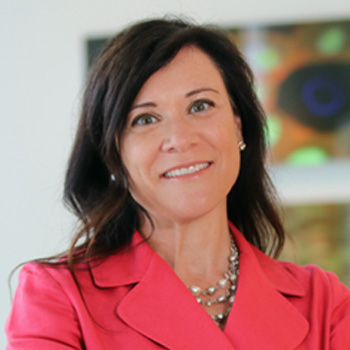
Dr. Daryl A. Bosco
Dr. Daryl A. Bosco, Professor of Neurology, UMass Chan Medical School, Worcester, Massachusetts, USA. Investigating mechanisms underlying microglial dysfunction in ALS
Dr. Bosco’s scientific career began with a Ph.D. in bio-organic chemistry from Brandeis University in Massachusetts (USA) and a post-doctoral fellowship at the Scripps Research Institute in California (USA), where she studied protein structure and misfolding in the context of neurodegeneration. Dr. Bosco was then an Instructor at Harvard Medical School in Massachusetts (USA), where she worked in the lab of Professor Robert H. Brown, Jr., MD, DPhil on sporadic amyotrophic lateral sclerosis (ALS). In 2008, Dr. Bosco established her independent research laboratory at UMass Chan Medical School. The Bosco laboratory is investigating the mechanisms underlying ALS and related disorders such as frontotemporal dementia. In particular, members of the Bosco laboratory are investigating how stress, traumatic brain injury and neuroinflammation contribute to these neurological disorders. Dr. Bosco has been awarded a Radala Foundation grant to investigate mechanisms underlying microglial dysfunction in ALS. The Bosco team is using human induced pluripotent stem cells to generate human microglia cells harboring disease-linked mutations in ALS genes, such as PFN1. Parallel studies will also be carried out in knock-in mouse models of ALS. The goal is to understand how ALS genes alter the properties of microglia, including phagocytic function and reactivity, under homeostatic and stress conditions.
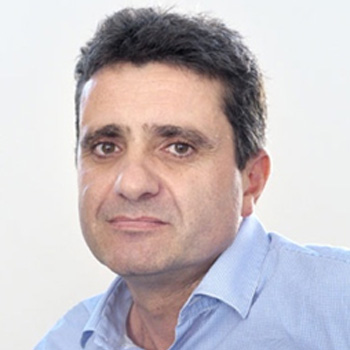
Dr. Cédric Raoul
Dr. Cédric Raoul (Research Director, National Institute of Health and Medical Research, Inserm). Understanding the role of immune cells in ALS pathogenesis.
Cédric Raoul is team leader and deputy director of the Institute for Neurosciences of Montpellier, Inserm, France. He obtained his PhD in 2002 from the University of Marseille, France in the laboratory of Chris Henderson, where he studied the mechanisms of motoneuron death in ALS. He then joined the laboratory of Patrick Aebischer at the Ecole Polytechnique Fédérale de Lausanne, EPFL, Switzerland, where he worked on the development of gene therapy tools targeting the SOD1 gene in ALS. In 2007, Cédric Raoul established his own laboratory in the Mediterranean Institute of Neurobiology, Marseille, before joining the Institute for Neurosciences of Montpellier in 2012. His team seeks to uncover the contribution of non-neuronal cells to motoneuron vulnerability in ALS with the aim of designing innovative therapeutic interventions. The team explores the cellular and electrophysiological aspects of the pathology using primary cultures of motoneurons, spinal cord preparations, mouse and Drosophila models and links them with clinical expertise and genetic research. Cédric Raoul established a transversal research strategy to address the intrinsic defects of motoneurons that make them susceptible to signals emerging from other cellular partners including astrocytes, interneurons and blood-derived cells. He has co-authored 57 publications in high-quality scientific journals (Nat Med, Neuron, PNAS, Cell Rep, Ann Neurol…), contributed 4 book chapters and has been coordinating several national and international consortia with partners from Canada, Russia and Europe (ANR, ERA-NET, Marie Sklodowska Curie Action, ALSA, FRM…).
Award 2021

Prof. Eva Hedlund
Eva Hedlund (Professor, Department of Biochemistry and Biophysics, Stockholm University, Sweden). Decoding the axonal transcriptome across ALS-causative mutations to reveal mechanisms of early motor neuron vulnerability and pathology in ALS.
With a strong background in stem cell biology and neurodevelopment, genome editing, neurodegenerative diseases, gene therapy and RNA sequencing technologies, Eva Hedlund and her laboratory have the goal to elucidate mechanisms of neuronal vulnerability and resilience in ALS with the purpose of identifying molecular targets for treatment. The Hedlund team are particularly interested in understanding how individual motor neurons modulate their transcriptome and proteome in response to ALS-causative mutations that will lead to the demise of some while others will remain apparently unphased. Towards this goal the Hedlund laboratory developed the spatial RNA sequencing method LCM-seq, which allows for in-depth sequencing from single cells in partially degraded tissues. Using LCM-seq Dr Hedlund has interrogated gene expression modulation in animal models, human post mortem tissues and stem cell-derived motor neurons and identified several motor neuron-resilience factors, including IGF-2 and synaptotagmin 13, which can prolong the life-span of ALS animals after gene therapy. Dr Hedlund and her team also developed Axon-seq, a highly robust method to sequence the content of neuronal processes, to further our understanding of axon biology in general and which she uses to unravel early disease mechanisms in ALS. Dr Hedlund has co-authored a large number of seminal papers in journals of very high scientific standing including Nature, Nature Medicine, Nature Communications, Cell Stem Cell, Acta Neuropathologica, Brain and Genome Research. After receiving her PhD from the Karolinska Institutet, Sweden, Dr. Hedlund conducted postdoctoral research both at UCLA School of Medicine -working on spinal cord and motor neuron development and identification of downstream targets of Hox genes - and subsequently at Harvard Medical School - focusing on stem cell therapies for neurodegenerative diseases and later on elucidating disease mechanism in ALS as an ALS Association young investigator awardee. She returned to Sweden and established her own laboratory focused on ALS research at Karolinska Institute in 2012. In 2020 she was recruited to Stockholm University and moved her laboratory to the Department of Biochemistry and Biophysics while maintaining an affiliation with the Karolinska Institute.
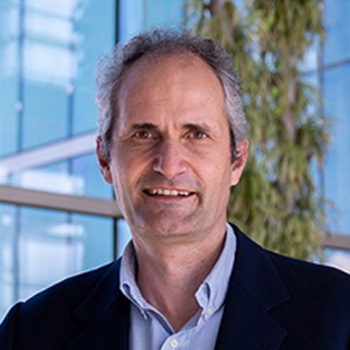
Dr. Bernard Schneider
Bernard Schneider (Head of Gene Therapy Core Facility), Mackenzie Mathis (Chair of Integrative Neuroscience) and Grégoire Courtine (Director of Center for Interventional Neurotherapies) Campus Biotech, Ecole Polytechnique Fédérale de Lausanne (EPFL), Switzerland. Exploring cell-cell interactions in ALS by analyzing single cell transcriptomic and motor behavior responses to SOD1-targeting gene therapy.
With a strong expertise in the engineering and application of viral vectors for gene delivery to the central nervous system, Bernard Schneider and his group explore how to translate fundamental discoveries of the mechanisms underlying neurodegeneration into effective gene therapies. He took his PhD in Biomedical Sciences from the University of Lausanne in 2001 in the laboratory of Patrick Aebischer. He then joined the group of Clive Svendsen at the University of Wisconsin-Madison, where he developed human stem cell-based models of neurodegeneration. Bernard Schneider came to the EPFL in 2006, to explore how key genetic determinants of aging involved in the quality control of protein and organelles determine the fate of neurons in the context of Parkinson’s disease. As Research Associate in the Aebischer group, he started working on motoneuron diseases, developing a gene therapy approach targeting mutated SOD1 by RNA interference, with a particular interest in the crosstalk between different cell types in this genetic form of ALS. He also explored the importance of ER-mitochondria interaction in the context of Charcot-Marie-Tooth disease. Since 2017, he is heading the Bertarelli Platform for Gene Therapy at EPFL, a lab dedicated to the development of vector technologies to address research needs and promote the development of gene therapies tackling neurological diseases. The lab is embedded in the dynamic environment of Campus Biotech in Geneva, which is focused on translational Neuroscience. He is the co-author of more that 100 publications, mainly related to neurodegenerative diseases.

Prof. Mackenzie Mathis
Professor Mackenzie Mathis is the Bertarelli Foundation Chair of Integrative Neuroscience at the Swiss Federal Institute of Technology, Lausanne (EPFL) and is an ELLIS Society Scholar. Prior to joining the EPFL, she was a Harvard Rowland Fellow and received her PhD at Harvard. Her lab works on mechanisms underlying adaptive behavior in intelligent systems, combining machine learning, computer vision, and integrated experimental work in rodents. She also is the developer of DeepLabCut, a leading open-source software for animal pose estimation.
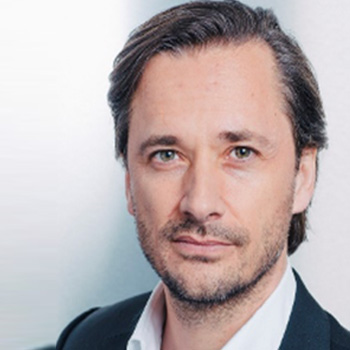
Prof. Grégoire Courtine
Professor Grégoire Courtine was trained in Physics and Neuroscience. His passion for translational neurosciences has fueled his research in the development of neurotechnologies to improve recovery from neurological disorders. After obtaining the Chancellor Award during his post-doc at the University of California Los Angeles (UCLA), he established his own laboratory at the University of Zurich in 2008 before joining the Swiss Federal Institute of Technology Lausanne (EPFL) in 2012. He is now Full Professor of Neuroscience and Neurotechnology in the Center for Neuroprosthetics at EPFL and adjunct Professor in the department of Neurosurgery at the University Hospital Lausanne (CHUV) where together with Jocelyne Bloch he is director of the Defitech Center for Interventional Neurotherapies (NeuroRestore). He is also Chief Scientific Officer (CSO) of GTX medical, a start-up he founded in 2014 to translate the neurotechnologies developed in his laboratory into clinical treatments.
Award 2020
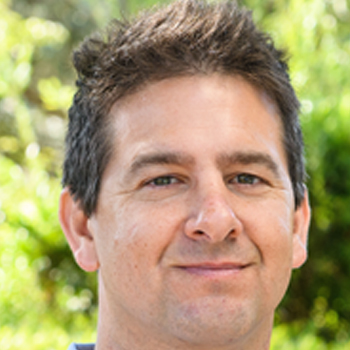
Prof. Eran Hornstein
Eran Hornstein (Assoc. Prof., Dept. Molecular Genetics, Weizmann Institute, Israel) Proteomic mapping of SG disassembly processes suggests a potential neuroprotective role of SUMOylation in C9orf72-associated ALS
With a strong experimental basis at RNA molecular biology, Eran Hornstein and his lab are undertaking converging approaches towards uncovering the impact of RNA regulatory networks in neurodegeneration. Hornstein’s lab utilizes systems approaches, computational data science, mouse genetics and iPS cell-derived human neurons. Neuro-genetics: Non- protein coding regions, which encompass 97% of the human genome, are overlooked by traditional genetics studies. Hornstein’s lab is an affiliated member of the Project MinE consortium, exploring non-protein coding mechanisms. Hornstein’s lab also develops disease biomarkers based on cell-free RNA from patient biofluids. Neuro-cell biology: Membrane-less organelles, composed of RNA and protein partners, emerge as an important interface for RNA biology research in neurodegeneration. Hornstein’s lab is interested in understanding the potential connection between different types of membraneless organelles, normal neuron function and insufficiency in ALS. Eran Hornstein, MD, PhD is affiliated with the department of Molecular Genetics at the Weizmann Institute of Science, Israel, since 2006. He directs the Nella and Leon Benoziyo Center for Neurological Diseases and is incumbent of the Ira & Gail Mondry Professorial chair. For complete list of published work: Read More

Prof. Eran Perlson
Eran Perlson (Assoc. Prof., Dept Physiology & Pharmacol., Tel Aviv Univ., Israel) NMJ maintenance in ALS: the role of axoplasmic TDP-43 condensation in mitochondrial local protein synthesis
Prof. Eran Perlson is an Associate Professor in the Department of Physiology and Pharmacology at Tel-Aviv Faculty of Medicine and Sagol school of Neuroscience at Tel-Aviv University, Israel. He completed a B.Sc. in biological studies at Tel-Aviv University. His Ph.D. was obtained at the Weizmann Institute of Science in the laboratory of Prof. Mike Fainzilber on molecular mechanisms of axon regeneration after injury. He then joined the research group of Prof. Erika Holzbauer at University of Pennsylvania Medical School, in which he focused on understanding the mechanisms underlying axonal transport and neurodegenerative diseases. In October 2010, Eran returned to Tel-Aviv University and established his molecular neurodegeneration research group. His long-term research goal is to understand molecular mechanisms that play an essential role in motor neuron degeneration in ALS. Prof. Perlson and his team have developed a unique Lab-on-a-Chip platform that enables co-culture of motor neurons and muscle on a silicon chip. This platform mimics the motor unit and provides a simplified way to study mechanisms of neuromuscular junction formation, maintenance and disruption at subcellular levels. His scientific work has earned him a large number of distinguished grants, awards and honors, including the ERC starter grant, Human Frontier grant, Sieratzki-Korczyn Prize for Advances in Neuroscience; The Muscular Dystrophy Association, development grant; and The Milton Safenowitz Post-Doctoral Fellowship for ALS Research, ALSA. Eran is the author of numerous scientific publications and invited speaker to leading international meetings.

Dr. Eric Storkebaum
Eric Storkebaum (Head, Dept. Mol. Neurobiol. Radboud Univ. Netherlands) & Luc Dupuis (Director of Research INSERM UMR-S1118, Univ. Strasbourg, France): Investigating muscle-intrinsic toxicity of ALS-mutant FUS and its non-cell-autonomous contribution to motor neuron degeneration in a FUS-ALS knock-in mouse model
Dr. Erik Storkebaum is professor and chair of the Department of Molecular Neurobiology at the Donders Institute and Science Faculty of the Radboud University (Nijmegen, Netherlands). After his M.Sc. in pharmaceutical sciences (magna cum laude) at KU Leuven (Belgium), he obtained his PhD at VIB and KU Leuven, working on the role and therapeutic potential of vascular endothelial growth factor (VEGF) for ALS in Peter Carmeliet’s laboratory. During his postdoc in the laboratory of Patrick Callaerts (VIB and KU Leuven), he used the fruit fly Drosophila melanogaster as a genetic model for neuromuscular diseases. Before moving to Nijmegen in 2017, he was an independent ‘Max Planck Research Group Leader’ at the Max Planck Institute for Molecular Biomedicine in Muenster (Germany) from 2010 onward. Dr. Storkebaum received several awards, including the Pharmaleuven Prize (2001), the Galenus Prize (2005) and the Baron Simonart Prize (2005), and he was supported by multiple funding sources, including a Frick Foundation award in 2010 and an ERC Consolidator grant (2018). The Storkebaum lab combines Drosophila and mouse genetics to unravel molecular mechanisms underlying neuromuscular diseases, including ALS and Charcot-Marie-Tooth (CMT) peripheral neuropathy.

Dr. Luc Dupuis
Dr. Luc Dupuis is Research Director at Inserm (French national institute for health and medical research) and is Head of the U1118 laboratory (Central and Peripheral Mechanisms of Neurodegeneration) in Strasbourg, France. He also coordinates the installation of the center for biomedical research in Strasbourg, a newly built research institute of 300 academic researchers.
Luc Dupuis co-authored more than 80 peer-reviewed publications in the best neuroscience and neurology journals, including Nature Neuroscience, Lancet Neurology, Brain, Annals of Neurology and Acta Neuropathologica, as well as in journals including PNAS and EMBO Journal. His work is entirely focused on ALS and is internationally recognized and he received several national and international awards (Fabrice le Mouhaer Award, Eliane et Gérard Pauthier Award, ENCALS Young Investigator Award 2013, Frick Foundation Award 2013), including the prestigious Bettencourt Schueller award “coup d’élan” in 2019. His lab provided evidence that weight loss is clinically and therapeutically relevant in ALS and has elucidated the underlying central mechanisms. They further characterized the role of serotonin neurons in ALS both in mouse models and patients. More recently, they characterized the mechanisms of FUS-mediated ALS by using conditional knock-in mice.
Award 2019
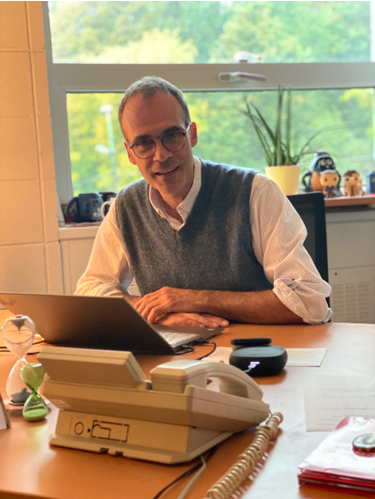
Dr. Patrick Dion
Dr. Patrick Dion is an Assistant Professor in the Department of Neurology and Neurosurgery at the Montreal Neurological Institute affiliated to McGill University. He obtained his M.Sc. and Ph.D. at Université de Sherbrooke (Sherbrooke, Canada) and Université de Montréal (Montreal, Canada), respectively, where he studied mechanisms of oncoviral cell transformation and the mutagenic specificity of alkylating agents at specific regions of the genome. His postdoctoral research was carried out at the Hospital for Sick Children of Toronto (Toronto, Canada) and later in the Centre for Neuroscience Research of McGill University (Montreal, Canada).
Prior to his move to the Neurological Institute in 2013, he was an Assistant Professor in the Department of Pathology and Cell Biology of Université de Montréal. Dr Dion is interested in the identification of novel genetic risk factors in a range of neurological conditions (amyotrophic lateral sclerosis, essential tremor, restless legs syndrome) as well as into the characterization of the underlying pathogenic events associated with these risk factors. He contributed to a number of studies in the field of ALS, and in 2015 his study of the nuclear pore component, Gle1, opened the door to a range of reports observing nuclear-cytoplasmic export defects where Gle1 and other component of the nuclear pore were observed to be mislocalized.
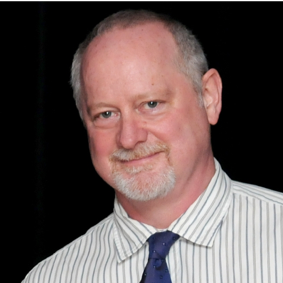
Dr. Guy Rouleau
Dr. Guy Rouleau is the Director of the Montreal Neurological Institute and Hospital (The Neuro) affiliated to McGill University (Montreal, Canada). Over the last 25 years, Dr. Guy Rouleau and his team have focused on identifying the genes causing several neurological and psychiatric diseases, including autism, amyotrophic lateral sclerosis, hereditary neuropathies, epilepsy and schizophrenia, as well as providing a better understanding of the molecular mechanisms that lead to these disease symptoms. In 2017 he launched the Tanenbaum Open Science Institute (TOSI) aimed to accelerated the generation of knowledge and novel effective treatments for brain disorders by freeing science.
Dr. Rouleau’s main achievements are his contribution to the identification of dozens of disease causing genes and his discovery of new mutational mechanisms. In regard to ALS he has overseen the implementation of an iPSC facilities where assays and models are being studied to develop assays using cells from patients differentiated into disease relevant cell types. Dr. Rouleau has published nearly 800 articles in peer‐reviewed journals and has been quoted more than 65,000 times (Google Scholar). He has supervised more than a hundred students at the Masters, PhD and post‐doctoral levels in addition to receiving numerous awards for his contribution to science and society.
Award 2018
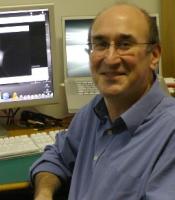
Dr. Daniel Zytnicki
Dr. Daniel Zytnicki is a neurophysiologist. He performed his PhD work in the laboratory of Professor Y. Laporte at the Collège de France under the supervision of Léna Jami before moving for a post-doc to the University of Göteborg in the Lundberg's laboratory under the supervision of Elzbieta Jankowska. He was recruited in 1984 as a junior researcher at CNRS and since 1998, is a CNRS Research Director. He is currently working at the Paris Descartes University where he is leading the "Spinal Physiology and Pathophysiology team". In this University, he founded an interdisciplinary research unit, the Laboratory of Neurophysics and Physiology and he has directed the Research Federation in Neuroscience from 2014 to 2018.
His long-standing research work aims at elucidating 1°) how the proprioceptive inputs control the activity of motoneurons, i.e. the output stage of all motor systems, and 2°) the pathophysiological mechanisms that lead to degeneration of motoneurons in amyotrophic lateral sclerosis (ALS). He is an expert in electrophysiological studies in vivo. In particular, he applied the dynamic clamp technique to the in vivo investigation of spinal motoneurons, and he used this breakthrough to unravel how intrinsic conductances of motoneurons interplay to produce a physiologically consistent electrical activity. Together with Dr. Marin Manuel, he has developed an in vivo mouse preparation that allowed them to obtain very stable intracellular recordings in spinal motoneurons. Thanks to this preparation, they have investigated the intrinsic properties of spinal motoneurons from adult mice in normal state. Later on, they applied their expertise to investigate the properties of motoneurons and the spinal circuitry in ALS.Dr. Zytnicki has received in 2000 the Foulon prize from the French Academy of Sciences for his work on the proprioceptive control of motoneurons.
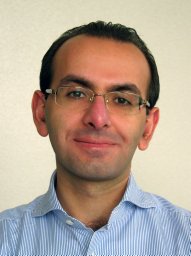
Dr. Francesco Roselli
Dr. Francesco Roselli is Principal Investigator in the Department of Neurology at the University of Ulm. After receiving his medical degree and board qualification in neurology at Bari University School of Medicine, he was trained on the synaptic mechanisms of Alzheimer Disease in the laboratory of Prof. Osborne Almeida at the Max-Planck Institute of Psychiatry (obtaining his PhD in Experimental Neurobiology); he then joined the laboratory led of Prof. Pico Caroni at the Friedrich Miescher Institute in Basel, where he worked on chemogenetic manipulation of neurodegenerative pathways and on activity-dependent mechanisms of neuroprotection in amyotrophic lateral sclerosis.
As an independent investigator, he is pursuing the role of circuit and mesoscale factors in determining the vulnerability of neurons to different acute and chronic insults and he is exploring the manipulation of synaptic inputs to deliver neuroprotection. Dr. Roselli exploits a set of viral vectors, chemogenetic approaches, advanced imaging and multiple murine and iPSC models to investigate ALS, traumatic brain injury and collaborates extensively with partners in clinical neurology and in industry to bring the basic-science advancement to the bedside of patients.
He has received an EMBO long-term fellowship and research support from the Synapsis Foundation, the Thierry-Latran Foundation, the Baustein program of Ulm University-Medical faculty, the Deutsche Forschungsgemenischaft, the ERANET-NEURON program and from Hoffmann-La Roche and Bayer.